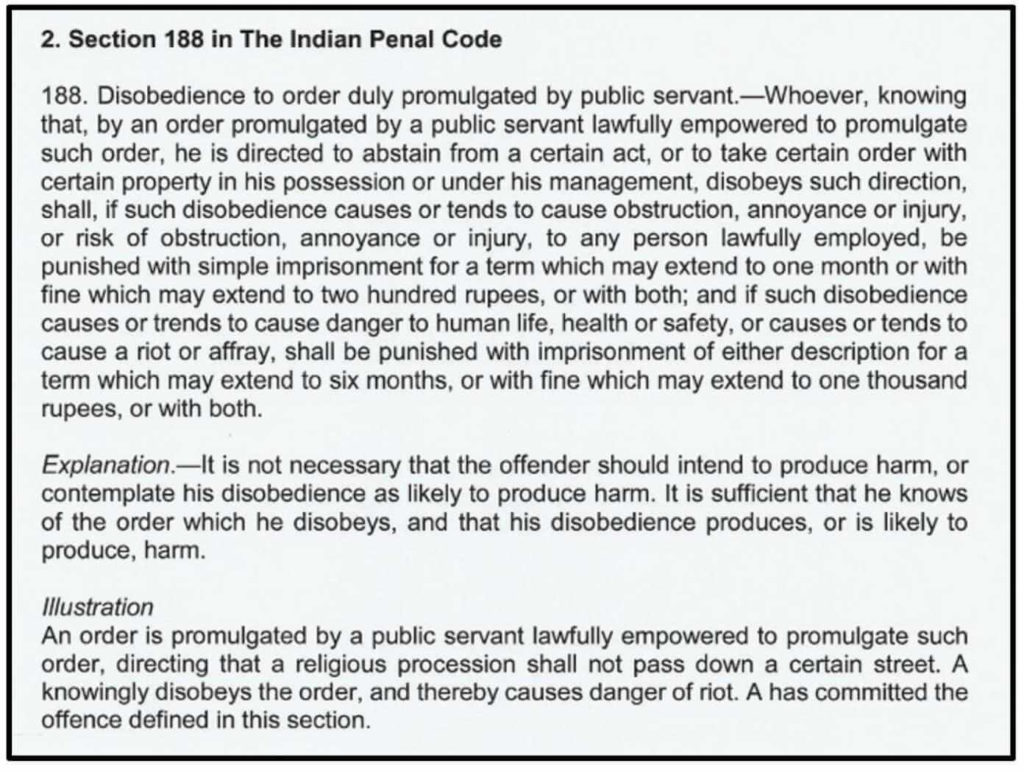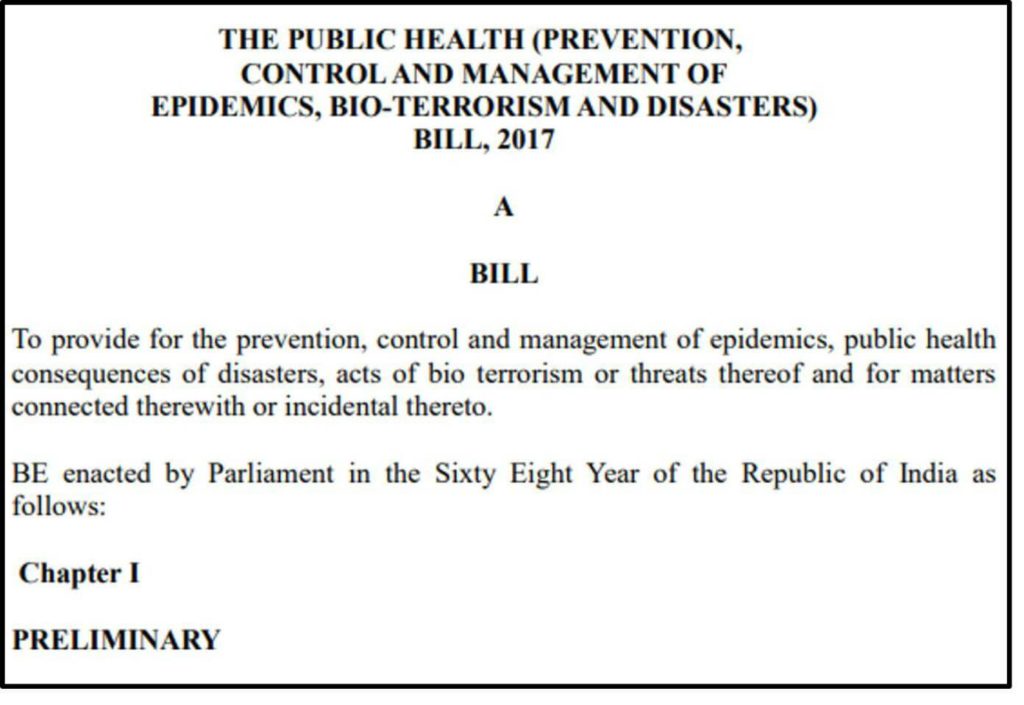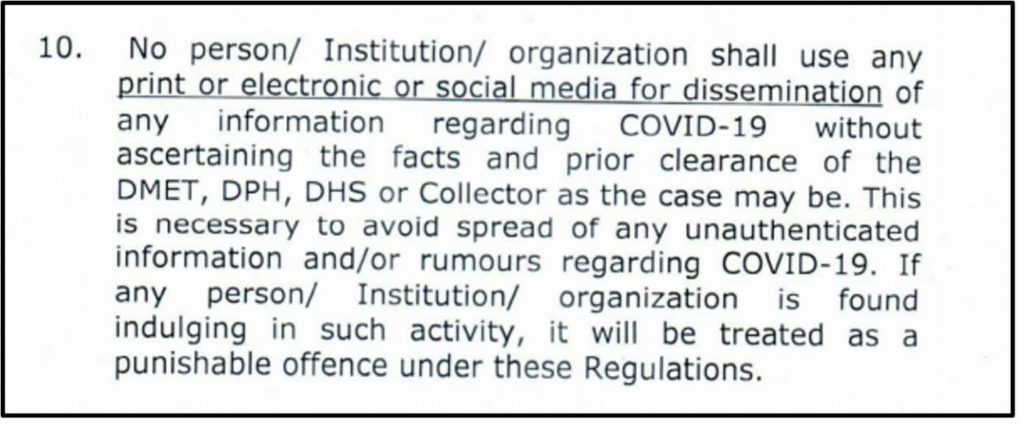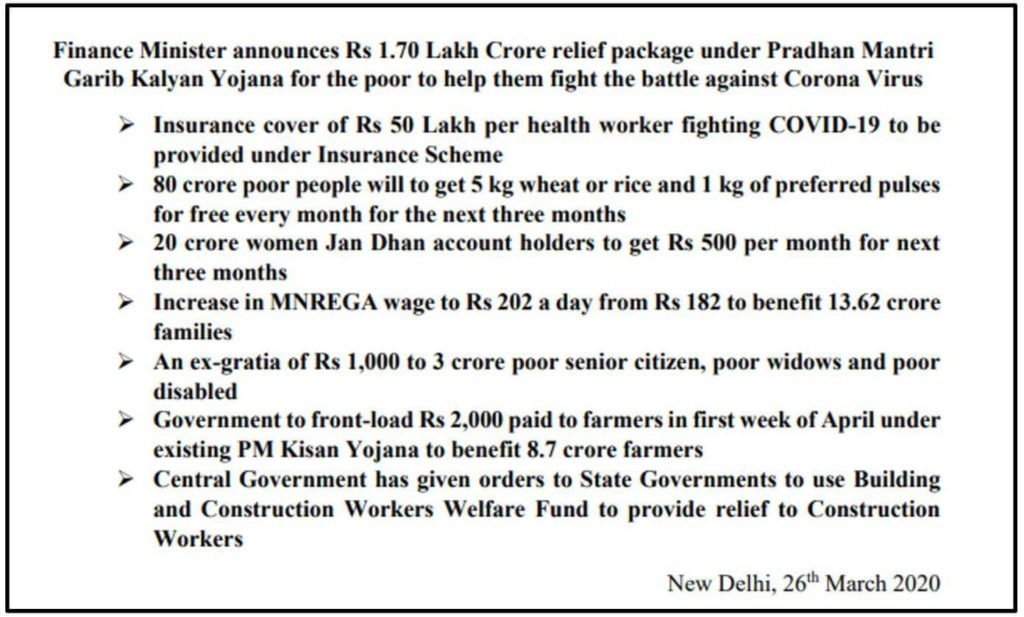Before a national lockdown was announced from 25 March 2020, several states announced state level lockdowns using powers in the Epidemic Diseases Act, 1897. But what is this 123-year-old legislation? Here is a detailed explainer.
The spread of COVID-19 is putting to test the healthcare systems of countries across the world as the number of cases being reported is increasing exponentially. As on 25 March 2020, WHO’s dashboard reveals that 4.16 Lakh confirmed cases from 196 nations have been reported since the onset of the disease. It has also resulted in more than 18,500 deaths across the world. Close to 700 cases are reported in India as of 26 March 2020. India has also reported 16 deaths till date.

Nationwide lockdown announced by PM on 24 March 2020 for 21 days
Prime Minister Narendra Modi announced a complete lockdown of India for 21 days starting 25 March 2020 as a measure to contain the spread of the global pandemic. Prior to this announcement, different state governments including Delhi, Maharashtra, and Telangana had already announced state-wide regulations for the same reason. The decisions taken the state governments is by invoking the British-era legislation known as The Epidemic Diseases Act, 1897.
123-year-old Epidemic Diseases Act is being used in India to deal with COVID-19
Epidemic Diseases Act, 1897 was implemented by the British, 123 years ago, to confront the plague epidemic which had significantly affected Bombay. The legislation is a simple two-page document with four sections that came into effect on 4 February 1897. The Act has only four sections.
While the first section of the act describes the title and scope, Section 2 gives state governments the authority to take adequate measures through public notice and impose temporary regulations on public in order to prevent the outbreak of the epidemic.

By invoking this law, state governments get the authority to inspect people and send them in quarantine, if necessary. Multiple states have invoked this section to come up with their own regulations as listed below.
The Telangana Epidemic Diseases (COVID-19) Regulations, 2020
Kerala Epidemic Diseases, COVID-19 Regulations, 2020
Delhi Epidemic Diseases (COVID-19) Regulations, 2020
The Maharashtra Epidemic Diseases (COVID-19) Regulations, 2020
Karnataka Epidemic Diseases (COVID-19) Regulations, 2020
Act gives authority to state and central governments to inspect & take effective measures to prevent outbreak
Similar powers are also extended to the central government under this law. The Central Government can take measures and prescribe regulations to even inspect people entering the country through the coastal borders. Inspection of ships and vessels in ports across the country and their detention can also be prescribed by the government.

Disobeying government’s orders under this act can lead to punishment under section 188 of IPC
Section 3 of the Act states that persons violating the orders or regulations issued by centre/ state governments under this act will be booked under Section 188 of Indian Penal Code. The violation could lead to a simple imprisonment which may extend up to a month and a penalty of Rs. 200 depending on the intensity of violation. The last section protects those persons/ officials acting under this law.

The law has been criticized for being ‘draconian’ since it gives the governments exceptional power to take measures by just notifying the public. Further, the law does not define what an epidemic disease is. It does not provide any guidelines or protocols to be followed at the time of an epidemic outbreak. The law is more than a century old and does not take into consideration the modern scenarios of urbanization, technology, transportation, etc. all of which might play an important role in tackling the situation. The act has no mention of the rights of citizens during these times.
COVID-19 is being treated as a disaster by NDMA
All the state level orders made under the 1897 act are now superseded by the order of the Ministry of Home Affairs (MHA). COVID-19 outbreak has been considered a national disaster as a result of which National Disaster Management Authority (NDMA) has invoked of Disaster Management Act, 2005 (DMA) to order states and union territories directing them to take lockdown measures. Section 6 of the Act entrusts NDMA with the responsibility to lay down policies, guidelines, and plans for disaster management so as to ensure timely and effective response. These rules are to be followed at the state level and the national level by all state authorities, ministries and departments.
The DMA came into effect in December 2005, a year after the Tsunami hit the Indian coasts causing extensive damage. This is the first time that the government is invoking the law to such an extent after its formulation. NDMA has also ordered state and central governments to take measures ensuring social distancing. Both national and state disaster relief funds can be used for fighting the disease.
India’s draft Public Health Bill introduced in 2017 is yet to see daylight
A draft public health bill was prepared by the government in 2017 called the Public Health (Prevention, Control, and Management of Epidemics, Bio-terrorism and Disasters) Bill to replace the century old Epidemic Diseases Act. The government also invited comments & suggestions for this draft public health bill. However, the bill has not seen the light of the day since it is yet to be introduced in the parliament.

What are the various measures taken by the government to deal with COVID-19?
Travel related action
From screening all international passengers to putting them in quarantine, the governments had taken multiple actions on the travel front. India had initially issued travel advisories and put in place visa restrictions. Gradually, as the number of cases increased, India banned all international flights. Domestic air travel has also been stalled for the moment. Only shipping services continue to be operational. Railways has also suspended of passenger train services to curb movement of people.
Telecom related action
The Health Ministry had also directed the Telecommunications Department to instruct all major telecom companies to play a 30-second long caller tune regarding preventive steps for COVID-19.
Online and e-platforms action
Most government websites display a popup showing do’s and don’ts for people to follow in the case of COVID-19. Similarly, state governments in their respective regulations, have taken measures to arrest the circulation of misinformation on social media by making it an offence. Government of India has also released fact checks to curb misinformation spreading. The Ministry of Human Resources and Development has also announced free download of bestsellers to promote reading and books during the lockdown period.

Relief fund allocation by Finance Ministry was announced by Nirmala Sitharaman
Finance Minister Nirmala Sitharaman on 26 March 2020, announced Rs. 1.7 Lakh crore relief package under Pradhan Mantri Garib Kalyan Yojana for the poor. Through this, the government will be providing an insurance cover of Rs. 50 Lakh for each health worker fighting COVID-19. Further, the government will be providing 5 kilograms of wheat or rice and a kilogram of preferred pulse for free to over 80 crore poor people in the coming three months. Government has also announced that it will be depositing Rs. 500 per month for three months in 20 crore women Jan Dhan accounts. In addition to this, the government has decided to raise the daily wage of MGNREGA workers by Rs. 20. During his address to the nation, PM Modi had also announced a Rs. 15,000 crore package to strengthen healthcare to fight COVID-19.

Detailed guidelines & protocols issued
The Ministry of Health & Family Welfare (MoHFW) has also issued advisories, guidelines, SOP and protocols for home quarantine, testing, sample collection, dead body management etc.
Italy and China both have comprehensive health laws
Healthcare in Italy falls under the purview of National Health Service known as Servizio Sanitario Nazionale (SSN). Both central and state governments in Italy have the responsibility in implementing the service. In Italy, the Consolidated Health Laws contain specific provisions which cover infectious diseases. Ministry of Health issues a list of infectious and communicable diseases on certain conditions. The act lists out reporting at various levels, preventive measures to be taken, necessary assistance to be given by the government and disinfection interventions to be taken by the government. Public health emergencies including epidemics are to be dealt with by government officials at centre, state and municipal levels. Ministry of Health upon assessing the situation issues ordinances.
Similarly, in China where the SARS epidemic broke out 2003 and COVID-19 in 2019, the government enacted public health legislation to curb health emergencies. The law was brought in following the SARS outbreak in 2003. As per the current law on prevention and treatment of infectious diseases, diseases are classified into three categories- A, B and C based on the severity of diseases. COVID-19 has been classified as category B. Isolation, medical assistance, provision of daily necessities and medical expenses have all been covered under the law.
Featured Image: Epidemic Diseases Act


